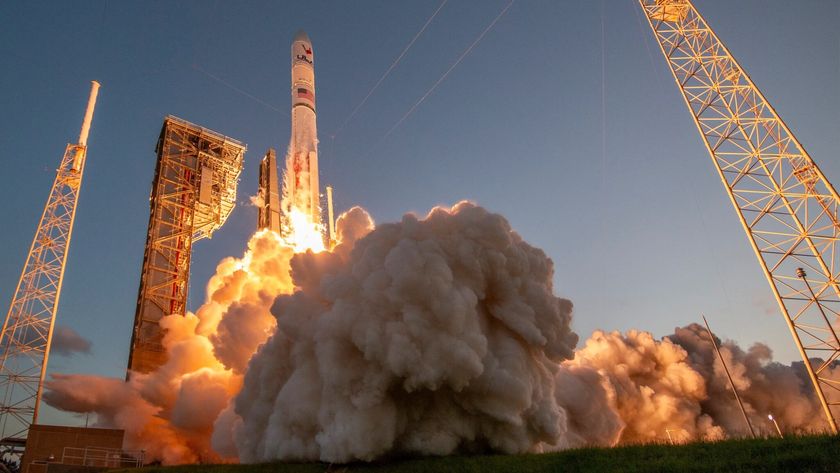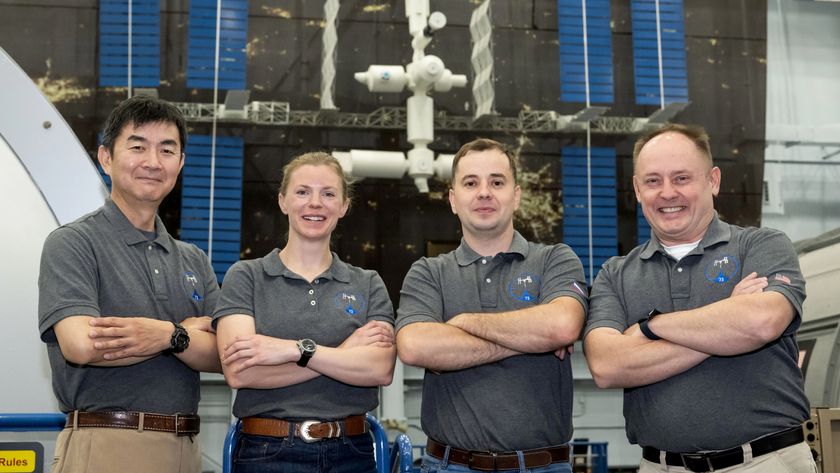Space Venture Symposium Highlights Industry Diversity
DALLAS, Texas ? The Space Venture Finance Symposium held here Thursday provided non-millionaire spaceentrepreneurs a full-day primer on how to woo investors.
The event,held in conjunction with the International Space Development Conference which opens today, placedits focus on the business of space, with attendees?including venturecapitalists and aspiring entrepreneurs?hoping to build business knowledge andcontacts. Two schools of thought about the space industry emerged from theday-long series of panels: entrepreneurs and investors still have much to learnabout each others? needs, and the budding space economy is becoming more diversifiedand sophisticated.
Learningthe Language
?It?s justlike any other business,? joked Joerg Kreisel, CEO of German space financefirm JKIC. ?Just that space stuff is tricky.? While being humorous, he made asimple point: space entrepreneurs, regardless of how exotic their technologyis, need to have sound business fundamentals?including management credibility,tangible assets, and sound financials?if they want to turn their inventions intoinvestments.
Burton Lee,founder of Innovarium Ventures, explained the five financing phases businessesexperience: ?family, friends, and fools,? seed money, early investment,expansion, and later.
Aftertapping ?FFF? investors to get started, entrepreneurs need to start talking toindividuals with bigger pocketbooks and more practical concerns, like return oninvestment (ROI). Individual investors, called ?angels,? look for ROI, but alsomight invest because they believe in the effort or individual. Venturecapitalists (VCs) are professionals who make their livings on smallerinvestments (up to a million dollars, but usually around $500,000). Angels andVCs usually invest in the early phases of a business.
Onceproven, a business enters the expansion phase and can approach more financiallyconservative firms like private equity investors and investment banks. TheSymposium included presentations and panels by angels, venture capitalists, andequity investors, as well as large businesses like Cisco or Microsoft that arewilling to invest in small businesses, and state governments like New Mexico,Texas, and Florida, which are trying to improve local economic development.
Get the Space.com Newsletter
Breaking space news, the latest updates on rocket launches, skywatching events and more!
John Tidmarsh,an expert in corporate finance and private equity, explained some of thereasons venture capitalists do not invest in space, including unfamiliaritywith space; perceived ?low deal flow? (meaning lack of people investing in it);and a perception that space-related businesses are not yet ?investment-ready,? dueto high costs or low ROI.
Kevin Leclaireof ISDR Consulting provided a ?top ten? list of signs that a space venture willbe able to raise capital, which included a large market opportunity, anexperienced management team, and a customer-driven, not technology-driven marketplan. In short, most of the financiers concentrated on business, nottechnological fundamentals. Tom Pickens, President and CEO of SPACEHAB,shrugged off the technology problem: ?That?s just money. That?s justengineering.? Engineers might be taken aback, but it does demonstrate howdifferently investors look at space businesses.
Thegovernment representatives touted their state-level programs for fosteringspace-related businesses, each of which had different strings attached. MichaelLyon, Managing Director for Spaceport Singapore, explained that even more complex restrictions exist overseas.
Indescribing next steps, the speakers emphasized the need to expand ?angelnetworks? and connect with other potential space investors.
ADiversifying Space Economy
Most of thenew companies do not just concentrate on launch services, though some, likeXCOR Aerospace and TGV Rockets, do. Seventeen businesses (out of an originalgroup of 80) were invited to join the event based on projected revenues,corporate background, company reputation, management experience, and otherqualities looked for by investors. They ranged from Orbital Outfitters ofCalifornia, specializing in developing space suits; to Orion Propulsion ofAlabama, providing engineering test services; to Alsatis, of Toulouse, France, developing low-cost IP networks for rural broadbandinternet users. Several speakers emphasized tying space-based technologies tofamiliar investment markets, like telecommunications, healthcare, orentertainment.
Lon Levin,co-founder of XM Radio, delivered the keynote address. He advised spacebusinesses not to depend on government contracts, but to use a blended approachinstead: developing capabilities that government might want but which theprivate sector could pick up quickly. He also counseled patience to the moreidealistic space advocates who believe ?the grandeur of space is incompatiblewith commercialization.? Levin took a more pragmatic view, saying, ?If we canhave a sustainable economy in space, we can have the grandeur, too.?
- National Space Society Conference Kicks Off in Dallas
- VIDEO: Post Mortem on Pixel
- VIDEO: Carmack vs. The Moon
- VIDEO: SPACE.com's Wirefly X Prize Cup Video Archive
- IMAGES: Wirefly X Prize Cup Gallery: Day One
NOTE: Theviews of this article are the author's and do not reflect the policies of the NationalSpace Society.
Visit SPACE.com/Ad Astra Online for morenews, views and scientific inquiry from the National Space Society.
Join our Space Forums to keep talking space on the latest missions, night sky and more! And if you have a news tip, correction or comment, let us know at: community@space.com.
Bart Leahy is a freelance technical writer residing in Orlando, Florida. Over the course of his career he's worked for The Walt Disney Company, NASA, the Department of Defense, Nissan, commercial space companies, small businesses, nonprofits, and the Science Cheerleaders. He's contributed to Space.com and Spaceflight Insider over the years and is currently Senior Technical Writer with Advanced Space where he'll be supporting multiple aspects of their operations, including website content, marketing, proposals, and technical deliverables.












